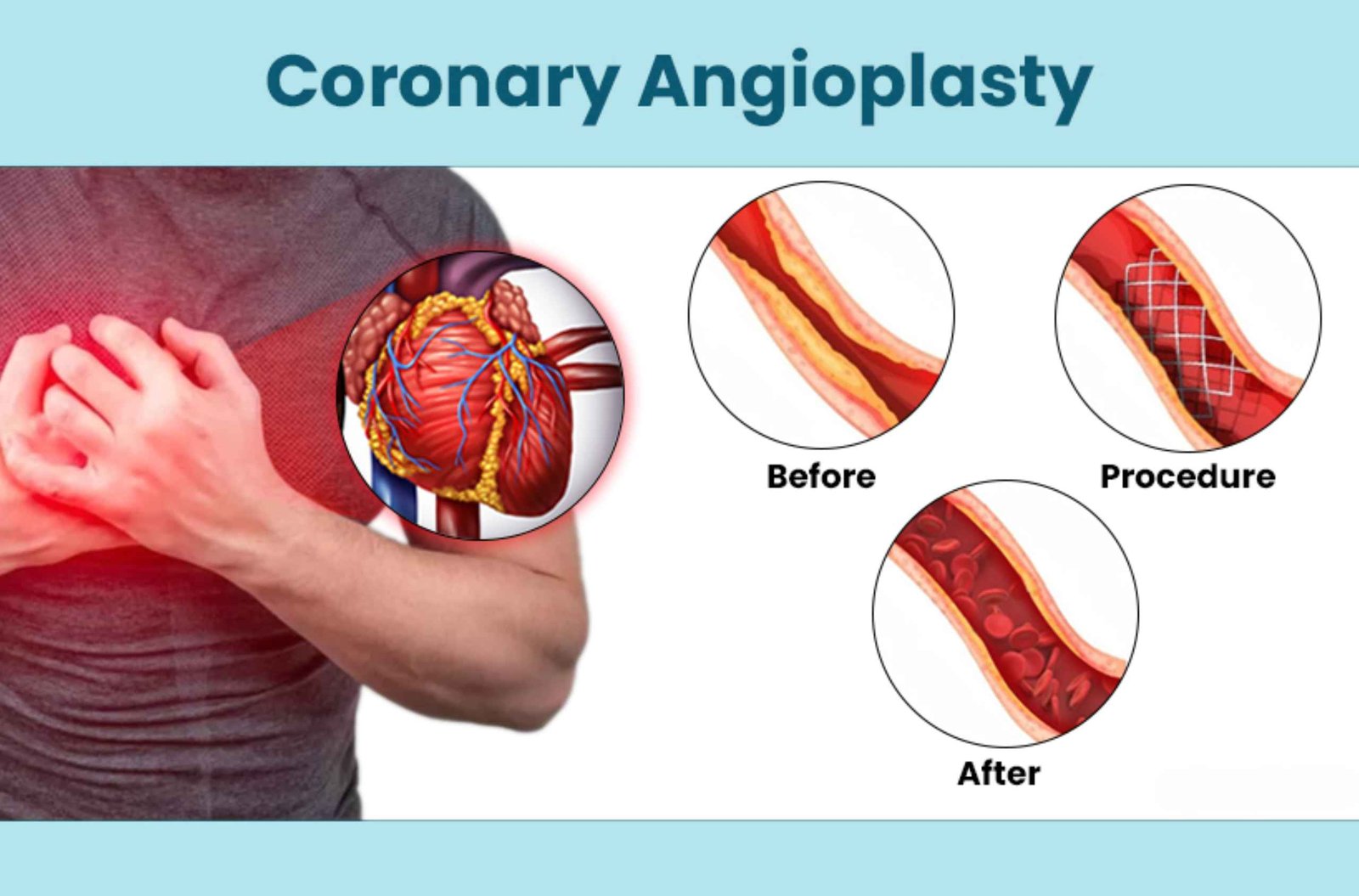
Coronary Angioplasty, also known as Percutaneous Coronary Intervention (PCI), is a medical procedure used to open narrowed or blocked coronary arteries. It is a common treatment for coronary artery disease (CAD), a condition where plaque buildup restricts blood flow to the heart muscle.
Coronary Angioplasty involves the following steps:
Coronary Angioplasty is performed to:
After Coronary Angioplasty, patients typically stay overnight for observation and are advised to:
Coronary Angioplasty is a highly effective procedure for treating coronary artery disease and restoring blood flow to the heart. Under the care of Dr. Amit, this minimally invasive procedure can significantly improve symptoms, reduce the risk of heart attacks, and enhance overall heart function. If you have symptoms of coronary artery disease or have been diagnosed with a blockage, discussing Coronary Angioplasty with Dr Amit could be a crucial step in managing your heart health.
Coronary Angioplasty, also known as Percutaneous Coronary Intervention (PCI), is a procedure used to open narrowed or blocked coronary arteries. It involves inserting a balloon-tipped catheter into a blood vessel, inflating the balloon to widen the artery, and often placing a stent to keep it open.
Dr. Amit may recommend Coronary Angioplasty to restore blood flow to your heart if you have symptoms of coronary artery disease (CAD), such as chest pain (angina), or if you have had a heart attack due to a blocked artery. It helps relieve symptoms and reduce the risk of future heart problems.
During the procedure:
The procedure is typically done under local anaesthesia, and you may be awake but relaxed during the process.
Coronary Angioplasty is generally safe, but like any procedure, it carries some risks, including bleeding, damage to the artery, allergic reactions to medications or contrast dye, and rarely, heart attack or stroke. Dr. Amit will discuss these risks and benefits with you before the procedure.
After the procedure:
Most patients can resume normal activities within a few days to a week, depending on their overall health and the complexity of the procedure.
The results of Coronary Angioplasty can be long-lasting, especially if a stent is placed to keep the artery open. However, lifestyle changes, including a heart-healthy diet, regular exercise, and taking medications as prescribed, are crucial for maintaining heart health and preventing future blockages.
Yes, Dr. Amit may prescribe medications, such as blood thinners (anticoagulants) and antiplatelet drugs (like aspirin or clopidogrel), to prevent blood clots and reduce the risk of complications. It’s important to take these medications exactly as prescribed.
You may need to avoid driving for a short period after Coronary Angioplasty, especially if you have received sedation or anesthesia during the procedure. Dr. Amit will provide specific guidance based on your individual circumstances.
Adopting a heart-healthy lifestyle is crucial for preventing future heart problems. This includes quitting smoking, maintaining a healthy weight, eating a balanced diet low in saturated fats and cholesterol, exercising regularly, managing stress, and attending follow-up appointments with Dr. Amit for ongoing monitoring and care.
In some cases, the artery may narrow again over time, especially if you have underlying coronary artery disease. Regular follow-up visits with Dr. Amit and adherence to your treatment plan can help monitor your heart health and address any concerns early.